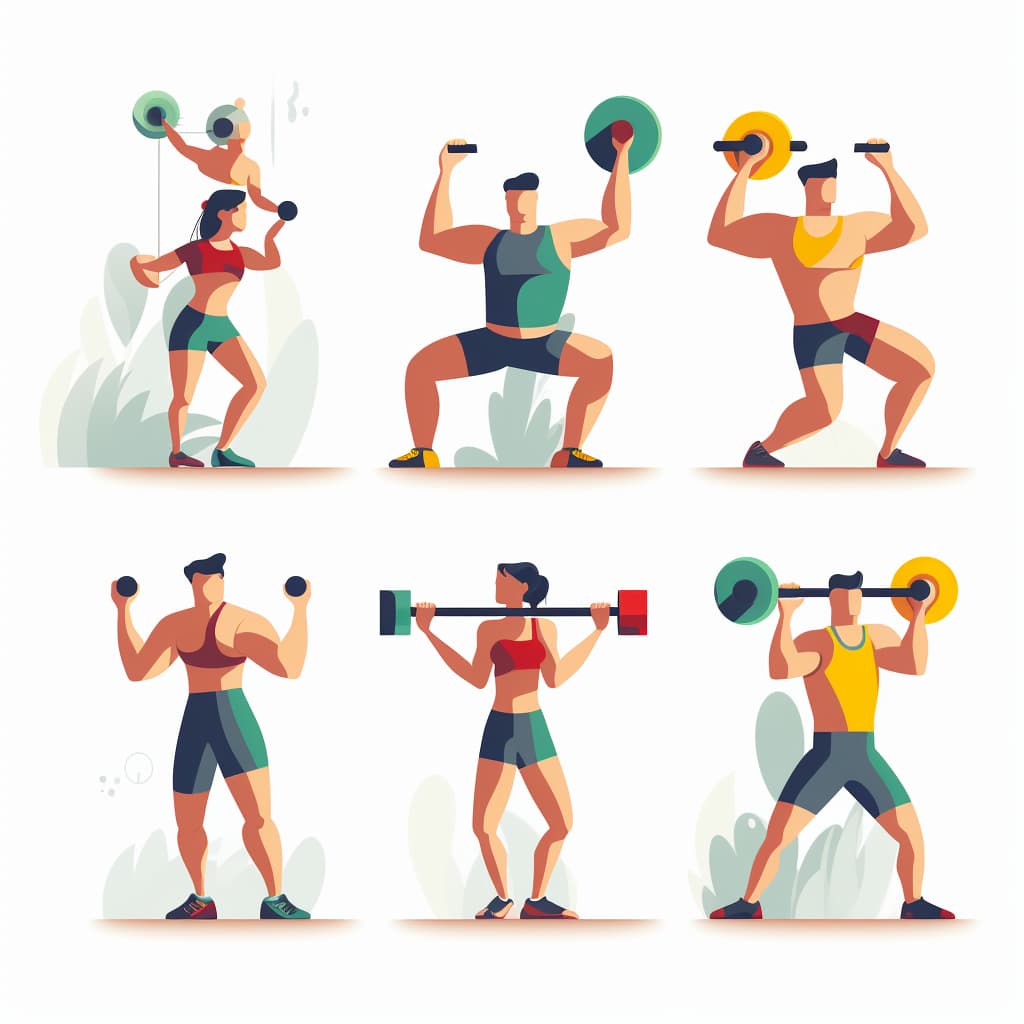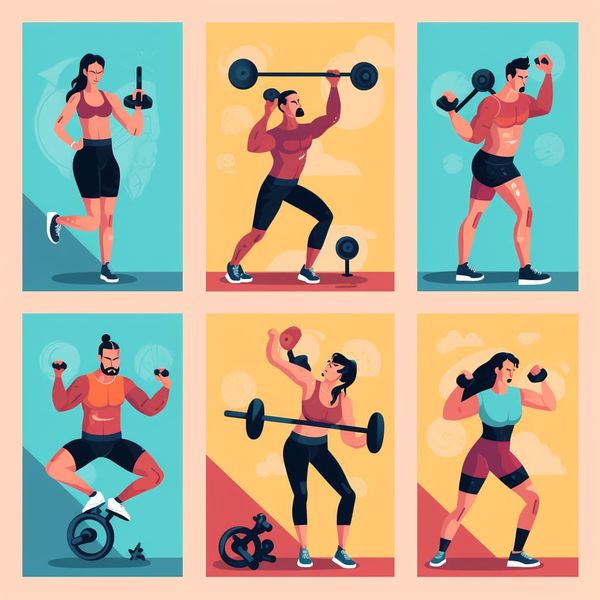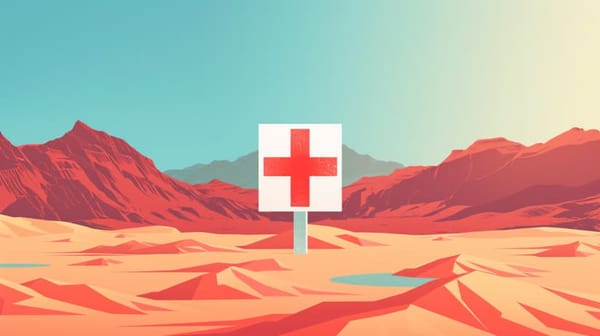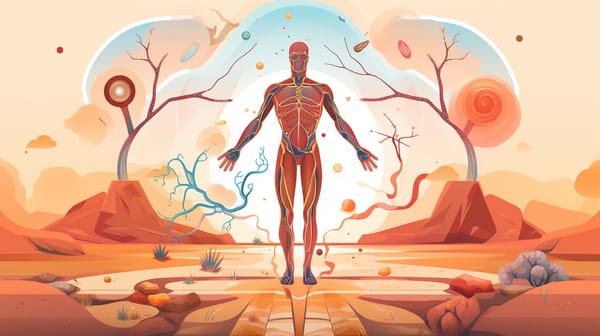In this discussion we'll talk about Viral Reactivation and Stressors - something everyone may be prone to, but especially relevant to anyone looking to heal from any form of advanced illness. It is my theory that most of the problems with any advanced post-viral illness, and even bacterial illnesses like babesia and lyme's have roots in viral reactivation. A weakened immune system may not keep latent viruses in check, leading to their reactivation. Every time you drive your body to a high level of stress, you trigger this reactivation. In turn, it further worsens you bit by bit. Imagine a tug of war where you are constantly being pulled in the wrong direction more and more. You have the option of finding treatments and supplements that will stall the rope, or you can use dry fasting to try to push back and pull back into recovery. There are many stresses that we need to be aware of because battling them successfully will be the difference between meandering in the same place or actually healing.

Viral Reservoirs and Reactivations
These viruses that plague us reside everywhere, but the scariest places where they can lurk are in our spinal fluid, our neurons, and even our bone marrow. These three places are critical parts of our normal functioning. We've got our brain, our whole nervous system, and our skeletal system. We tend to think about our issues being in the blood, skin, and organs. So when something gets to the deeper critical systems, our bodies don't have as many mechanisms to deal with it. It's why we've developed protections like stomach acid, skin pH and protection layers, antibodies in the blood, and more. But once something wriggles in deeper, we often really can't do much about it.

Think of things like the herpes virus. 90% of the world is a carrier, but only a small percent actually display symptoms. This virus is extremely contagious and penetrates deeply. Then it sits around. Our immune system basically suppresses it.
Have you ever thought about people going outside during winter right after a sweaty sports session? They seem to always catch a cold. Were they exposed to someone sick? Not always. This means that a viral reactivation may be occurring in the body. The stress was enough that it weakened the immune cell guards holding the virus back. Prison break style.
Long Covid and other Autoimmune issues
When you get a viral reactivation for long covid, you're in something called a relapse. And boy, does it suck. It's more than just sucky. The relapse most likely causes additional damage. I've seen it over and over and experienced it myself many times. A relapse, even if controlled, after a few days causes damage. This damage can be in the form of a higher viral load throughout the body, including in the cerebrospinal fluid. Think viral replication. Blood clots all over. If it's a severe relapse people often feel like they get a sort of exacerbated Reynaud's syndrome. The toes or fingers may get colder or lose blood flow, especially with cold temperatures. Brain fog increases, minerals are depleted, and suddenly you're waking up more often and having a harder time falling asleep.

Telltale signs include having to take melatonin and other supplements to fall asleep. If it gets really bad you suddenly realize that you need to keep upping your melatonin dose, your magnesium glycinate, and theanine combination, and even then you will jolt awake somewhere around 3 AM without being able to fall back asleep. You might experience shortness of breath when it comes to eating foods, or exercise intolerance, and sometimes you'll even feel like you came down with the sickness all over again. It can be a nightmare.
The Immune System is Rebuilding
A critical piece of information that I wish everyone knew. During your refeed, especially if you've done 3 days or more, your immune system gets a rebirth. This is a beautiful thing, right? Yes, and no. What people fail to realize is that these next few days are vital to your healing. You cannot overstress your body during this special time. Imagine a prison running with the absolute minimal amount of prison guards. You lose one or two and the whole thing collapses. This is our immune system. That's why I stress in every scorch protocol about how important it is to stay warm on the first days of the refeed. You will feel colder. Stop the cold plunges, stop the strenuous exercise, stop all the stresses. Wear something warm, but don't overheat either. Think Goldilocks principle. Way too many times I see people relapsing during the refeed and going backwards instead of forward.
Types of Stresses
We're going to discuss different stresses. There are probably a few more that I missed, but I believe I'm covering the more important ones. You need to be aware of all the types of stresses so that you can combat them effectively. Your health depends on it. There's a reason protocols are designed a specific way and a reason why you can't just make stuff up and do what you want. Most of these stresses need to be managed during the refeed. However, there are situations where you should be careful during the first day or two of a dry fast. The first days of a dry fast are similar to a water fast. You're still vulnerable during these days. It's when you enter deep ketosis and autophagy that you are safe. During the safe period, you can work out (intelligently), and expose yourself to stresses without risk.

The body's response to various stressors, whether they be physical (like heat or cold stress), emotional, or chemical, can influence the immune system. A weakened immune system may not keep latent viruses in check, leading to their reactivation.
Heat Stress
The first type of stress that you need to watch out for when refeeding after a dry fast is heat stress.
When cells are exposed to elevated temperatures, they produce heat shock proteins. These proteins play a crucial role in protecting cells and aiding in their recovery from stress. However, some studies suggest that certain viral proteins can mimic or interact with host HSPs, potentially aiding in viral reactivation or replication.
Heat stress, like other physical stressors, can lead to the release of stress hormones such as cortisol. Elevated cortisol levels can suppress certain functions of the immune system, potentially creating an environment where latent viruses might reactivate.
HSV, Epstein-Barr Virus, and other latent viruses have all been linked to reactivation with heat stress and UV stress. This means you need to watch out when it comes to sunburn as well. I'm not a big fan of sunscreen and all its chemicals, so use nature's sunscreen: shade and clothing.

Cold Stress
The second type of stress that you need to watch out for is cold stress. It's the polar opposite of heat stress. There isn't as much evidence for viral reactivation with cold stress, but like all stress is can affect the immune system, so during the rebuilding phase it can have just as much impact as heat stress. In fact, it's highly advised to stay warm rather than cold when you exit a dry fast.
Exercise Stress
After intense and prolonged exercise, there's a temporary period (often referred to as the "open window") of impaired immune function. During this period, which can last from a few hours to several days, the body might be more susceptible to infections and, theoretically, the reactivation of latent viruses.
This temporary immune suppression is believed to be a result of several factors, including:
- Hormonal responses to exercise, such as increased cortisol levels.
- Redistribution of immune cells to other parts of the body.
- Decrease in the concentrations of some immune system components in the blood.

Intense exercise might lead to reductions in salivary IgA, an important antibody in the body's first line of defense. A decrease in mucosal immunity might increase susceptibility to respiratory infections and possibly the reactivation of respiratory viruses. There's even a possibility of a blood level reduction of IgG after intense exercise. This correlates very strongly to the pattern of Long Covid and other post viral diseases affecting athletes and other 'high stress' individuals more so than others.

Ketosis to Krebs Cycle Stress
Transitioning from a state of ketosis back to glycolysis (where the body primarily uses glucose as fuel) can be stressful for the body, especially if done abruptly after extended periods of fasting. Dry fasting is such a powerful ketosis inducer, that the shift from a dry fast back to eating calories is very extreme.
After a period of very low carbohydrate intake, consuming a large amount of carbohydrates will result in a significant insulin spike. Elevated insulin can influence the immune system by affecting cytokine production and potentially suppressing some immune functions.
An abrupt introduction of carbohydrates requires the body to shift metabolic gears quickly, which can cause temporary cellular stress. The metabolic stress of transitioning from ketosis to glycolysis could be enough to trigger viral reactivation in susceptible individuals. It's here that you can try to counter this stress by having MCT oil on hand. If you want to go with a slightly safer and more natural approach you can go with coconut oil. A small amount of it with your first caloric meals can be the difference between an abrupt metabolic shift and a more gradual metabolic shift.
That's also why going with overly sweet compote, honey, or even sweetened coconut water is dangerous specifically to things like viral reactivation. Healthier individuals won't have much issues, but if you're one of the post viral or bacterial long haulers, take this advice seriously. Choose things like vegetable broth over fruit broth. Of course, carbs are necessary to gradually wake up the digest system, and are a key component of rebuilding a lot of areas in the body like red blood cells, glycogen, stem cells, and more.
Liver, Organ, and Fat Cell Toxicity Stress
The body accumulates various toxins over time from the environment, food, water, and as byproducts of its own metabolism. certain toxins, especially fat-soluble ones, get stored in fat cells.
Liver Stress: With the release of stored toxins from fat cells, the liver, our primary detoxification organ, gets burdened with the increased load to process and excrete these substances. This can lead to oxidative stress within the liver.
Toxins and increased oxidative stress can weaken the immune system, possibly creating an environment conducive for latent viruses (like herpesviruses) to reactivate. This is mostly a worry when breaking the fast when the immune system is rebuilding and autophagy is downregulated.
One of the main solutions? It's called Gradual Fasting and you'll instantly realize why you're NOT advised to dive deep on your first fasts. Instead of diving into prolonged fasts immediately, one should gradually increase fasting durations over time, allowing the body to adapt and potentially release toxins at a slower, more manageable rate.
On a fast, your main goal is to make sure you're activating lymphatic drainage through gentle movement. I'm a fan of sometimes doing moderate exercise, just shy of strenuous deeper into a fast to really get the lymph system moving. Of course, this is time and health-specific so it varies from individual to individual.
If you are suffering from this because you have been sick for a long time and taken a lot of medication throughout the years, you are highly advised to water fast first while including things like liver flushes. I also really like the idea of hybrid fasting when we are trying to balance liver and fat cell toxicity with aggressive healing.
Sugar and Simple Carbs Stress
Consumption of high amounts of sugars and simple carbohydrates can have a profound effect on the body's physiological and immune functions. Some research suggests certain viruses can utilize glucose as an energy source. Thus, high blood sugar could theoretically provide more "fuel" for active viruses. So on top of causing inflammation and immune stress, high sugars can also promote viral replication. Although I believe that sugars can be part of a balanced diet, it's 100 times more important to manage them when it comes to post-viral diseases.
Sugars are necessary after a dry fast specifically because it's the easiest macronutrient to digest. Digestion trumps a lot when it comes to refeeding. Because if you're struggling with digestion your immune system is redirected to your gut. Cue viral breakout. A strategy for this is to avoid very high-sugar foods, focus on complex carbs, and manage it with light exercise like walking after a meal, and supplements like berberine, l-lysine, and even certain medications.
Food Stress
Do not overeat. Overeating equals stressing the immune system. Once again, digestibility is key. Don't eat animal proteins that require bile when your bile system is asleep. It's a recipe for a disaster. Give your body easily digestible whole foods with as little preservatives and chemicals as possible. It becomes a balance. You can't eat too much, you shouldn't eat too little. Both can be stressors after a dry fast. You also need to remember to stick to meal timings, because you also should not be constantly snacking. You want your MMC activated between meals, and you want the pancreas to get a little bit of a break.
Mental Stress
Set and setting. There's so much to say here but we know the basics.
Chronic stress can keep the body in a prolonged state of "fight or flight," governed by the sympathetic nervous system. This persistent arousal can negatively impact immune function, potentially paving the way for viral reactivation. Of course, during a dry fast, our cortisol levels skyrocket, but our body activates a ton of mechanisms that are able to balance it all out. We also have ketosis and autophagy running at such high levels that the system is kept clean and safe even with a depressed immune system. Think of super-activated autophagosomes.
The herpes family of viruses (which includes herpes simplex, Epstein-Barr, and varicella-zoster) is especially known for reactivating during periods of stress. Stress-induced changes in the immune system can allow these viruses, which remain dormant in the body, to reactivate and manifest clinically. Extrapolating from these known facts, we can assume that there may be other forms of viruses and bacteria that can remain hidden and reactivate during periods of increased stress. Why not long covid reactivation, especially in severe sufferers that had the virus penetrate deeply into the nervous system?

What can you do for mental stress?
You can engage in regular relaxation practices like meditation, deep breathing exercises, and yoga can help manage and reduce stress. you can make sure you're getting adequate sleep, maintaining a balanced diet, staying hydrated, and getting regular exercise. Yes, I know that exercise usually won't work in chronic fatigue and long covid scenarios, but with the correct strategy of dry fasting and pacing, you can start training your body to accept bigger and bigger exercise loads. This is tricky and needs to be done very carefully and precisely.
You'll also want to limit stimulants and depressants. Notice how a lot of people need to give up caffeine and alcohol? There's your correlation. Nicotine is a bit of a different beast and can be strategically used at the right times. The same goes for psilocybin mushrooms.
Don't forget that your magnesium levels are depleted, as well as vitamin C. These will cause a mental depression upon breaking the fast together with the transition from ketosis to the Krebs cycle.
Final Notes
I truly believe that the refeed is the critical time to manage the stressors and not let them win. When it comes to a lot of severe illnesses that I see people dealing with, a lot of it has to do with viral reactivation. However, the answer is not to completely eliminate stress from your life. The goal, in all my protocols and healing journey, is to pace your way into higher and higher stress with controlled burns. You need to expose the nervous system to this stress so that it can adapt and strengthen. I stress this in my consulting, so if you are serious about dry fasting and will meticulously track your data, reach out to me to partner up on your healing journey. But if you do it incorrectly, you can move backward in the healing path. Don't panic. I do my best to arm you with the right questions and information with articles like this. I hope this has been a bit of a lightbulb moment for you. It's up to you to do your homework and constantly improve. Good luck on your dry fasting journey.








